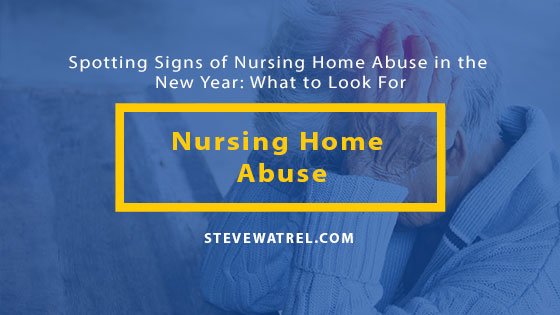Elderly abuse is a serious concern around the nation. It’s estimated that one out of 10 individuals over the age of 65 have experienced this abuse at some point. There are many cases of neglect that remain unnoticed and that are never reported. If you believe your elderly loved one is in a neglectful or harmful situation or that they are being financially exploited, there are several things you need to do to ensure their safety moving forward.
As a person ages, they become much frailer. As a result, the are not able to fight back or stand up to bullying behaviors if someone physically or verbally attacks them. They may not be able to see or to hear as well as they once did, which can result in other people taking advantage of their condition. Since older people often experience mental and physical limitations, it becomes more difficult for caretakers to manage.
In some situations, elder abuse isn’t taken seriously by supervisors, family members, or other caretakers. They may believe the individual is suffering from dementia or mental decline. While some signs of abuse can overlap with mental deterioration, every case or sign of neglect or abuse needs to be investigated.
The General Signs of Nursing Home Abuse
You can safely assume that an elderly individual is a victim of abuse if there are any changes in their personality or behavior, or if there is tension between the individual and their caregiver. Some of the more specific signs of abuse are listed here.
Physical Abuse
The signs and symptoms of physical abuse include:
- Broken eyeglasses
- Unexplained sprains, dislocations, or broken bones
- Refusal by the caregiver for anyone to be alone with the elderly individual
- Signs of restraint
- Improper medications given or not given
- Welts, scars, or bruising on the body
Emotional Abuse
Not all abuse is physical. Emotional abuse may also occur. Signs of this include:
- Unusual behavior of the elderly individual that resembles dementia symptoms, like rocking, sucking the thumb or fingers, mumbling, etc.
- Witnessing threatening, controlling, or belittling behavior by the caregiver.
Sexual Abuse
Elder abuse also includes sexual abuse. Signs of this include:
- Bleeding near the genitals
- Unexplained infections or STDs
- Bruising around the genitals
- Damaged undergarments
Caregiver Neglect
Another issue that some elderly individuals face is caregiver neglect. It can occur in several ways, including:
- Sudden or unusual loss of weight
- Dehydration
- Leaving the individual in a public location
- Bedsores
- Unsafe living conditions
- Soiled clothing, linens, or a dirty environment
- Bad personal hygiene
- Not dressed properly for the weather
Financial Exploitation
The elderly are also at-risk for financial exploitation. Signs of this include the following:
- Changes in the persons financial situation
- Changes in property titles, wills, life insurance policies, or a power of attorney
- Unexplained withdrawals from the person’s bank accounts
- Missing cash
- Unusual items showing up
If you believe that your elderly loved one is a victim of abuse or neglect, it is up to you to take action. This is a problem that is only going to get worse as time passes.




